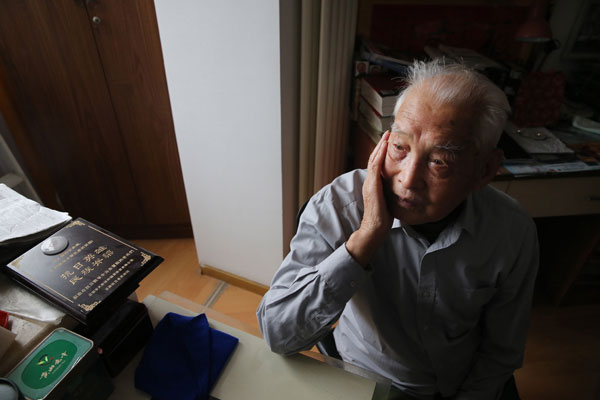 |
| You Guangcai, 94, lives quietly in a one-room apartment in Beijing. He joined the Kuomintang army in 1938 and fought the Japanese on Chinese soil and in Burma. Photos by Jiang Dong / China Daily |
Public awareness and sympathy are growing for neglected and long-suffering veterans, as Zhao Xu reports.
Mei Qing never really got to know her father until she was 41 and a stranger turned up at her door. The man told Mei that her father, who appeared anything but militaristic, was, in fact, a war hero.
"I was shocked, or maybe not so shocked at all," said Mei. "All through my life dad has been a mystery. He was as doting and protective as any other loving father, but he had a taciturnity that went beyond character, and an evasiveness that even a small child could sense."
Between 1937 and 1945, Mei's father fought the invading Japanese forces under the flag of the Kuomintang government. However, with the ensuing civil war, which lasted another three years, and the ultimate triumph of the Communist Party of China, the man, who is now in his early 90s, found himself dragged into a political maelstrom.
Over the next 30 years, as a former KMT soldier, Mei's father was stripped of all honors and dogged by the shadow of shame wherever he went.
He drew a curtain between himself and the rest of the world, behind which he wept and agonized.
All this came to an end during that strange visit on a sunny afternoon in 1995. "The man introduced himself as a volunteer from a nonprofit organization that concerned itself with the welfare of KMT veterans of World War II," said Mei. "As dad talked to him, it felt as if a ray of hope, long-trapped in a corner of his heart, was finally able to shine through."

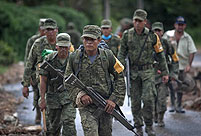 Storms leave 97 dead, 58 missing in Mexico
Storms leave 97 dead, 58 missing in Mexico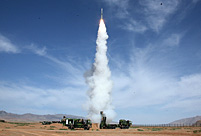 New model of indigenous surface-to-air missiles testfired
New model of indigenous surface-to-air missiles testfired  118.28-carat diamond to be auctioned in HK
118.28-carat diamond to be auctioned in HK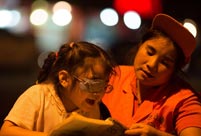 Maternal love under streetlight
Maternal love under streetlight Naked foreign student sits in the middle of a road in Haikou
Naked foreign student sits in the middle of a road in Haikou  Colorful Yunnan: Enjoy the natural beauty
Colorful Yunnan: Enjoy the natural beauty Harbin named Chinese city with most beautiful women
Harbin named Chinese city with most beautiful women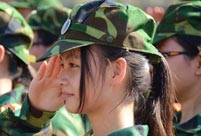 New college students' military training in Guangzhou
New college students' military training in Guangzhou Rugby girls
Rugby girls PLA's 38th Group Army conduct training
PLA's 38th Group Army conduct training Residences of the royal house of Savoy
Residences of the royal house of Savoy The last days of Wan Aihua
The last days of Wan Aihua Highlights at 12th National Games of China
Highlights at 12th National Games of China Beijing Film Academy welcomes freshmen
Beijing Film Academy welcomes freshmen Large mahjong party sets new world record
Large mahjong party sets new world recordDay|Week|Month